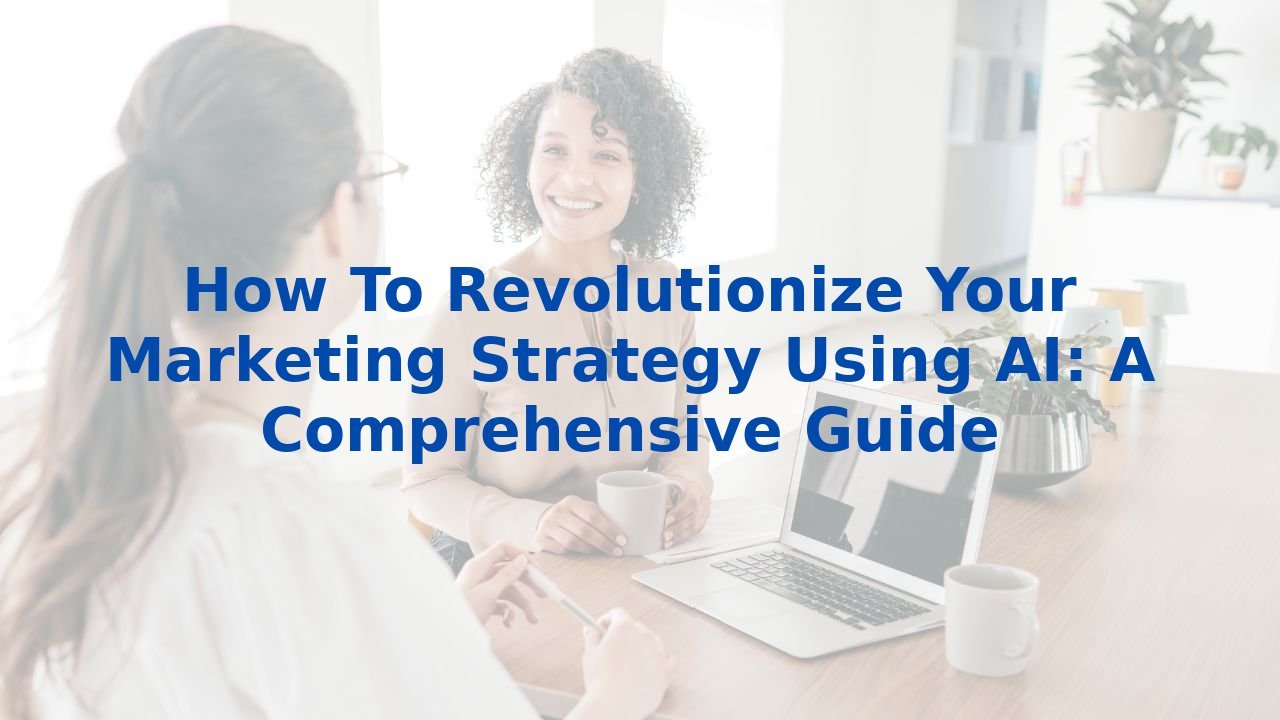How To Revolutionize Your Marketing Strategy Using AI: A Comprehensive Guide
How To Revolutionize Your Marketing Strategy Using AI: A Comprehensive Guide
Introduction
In the ever-evolving landscape of digital marketing, the integration of Artificial Intelligence (AI) stands as a game-changing force. The real magic happens when AI not only streamlines processes but also redefines how businesses engage with their audience and execute their strategies. This guide delves into the transformative role of AI in marketing and highlights the benefits it brings to an organization’s efficiency and overall performance.
Understanding AI in Marketing
The term AI in marketing encompasses a broad spectrum of techniques, from machine learning to natural language processing. These technologies empower businesses to automate repetitive tasks, analyze extensive datasets, and personalize customer interactions on unprecedented levels. Imagine being able to create content, manage social media, and segment customers all with the help of intelligent algorithms—this is the reality that AI offers.
Enhancing Marketing Processes with AI
1. Content Creation
One of the most significant advancements AI brings to marketing is the ability to generate high-quality content efficiently. Whether it’s crafting engaging blog posts or formulating social media updates, AI can save valuable time and resources. By automating these processes, marketers can redirect their focus toward strategic initiatives and creativity. It’s a way to amplify productivity without losing the human touch in messaging.
2. Social Media Management
Imagine having an AI system that not only schedules your social media posts but also analyzes user behavior and engagement metrics to enhance future content strategies. AI tools can decode the sentiment surrounding your brand, enabling you to tailor campaigns that resonate. This proactive approach allows marketers to engage with users in a meaningful way, responding to inquiries and trends swiftly, and ensuring that the brand voice is consistent and relevant.
3. Customer Segmentation
Personalization is the heart of modern marketing. Advanced AI algorithms can sift through complex datasets, identifying unique customer behaviors, preferences, and demographics. By segmenting the audience this way, you can craft targeted campaigns designed for specific groups, leading to higher conversion rates and improved satisfaction. The result? A more engaged customer base that feels understood and valued.
4. Data Analytics
When you harness AI’s data-processing power, the insights gleaned can be nothing short of revolutionary. AI-driven analytics offer real-time feedback, predictive modelling, and A/B testing insights that can propel your marketing decisions. These not only amplify understanding but also provide a clear path toward optimized strategies, reducing the guesswork often involved in marketing decisions.
Benefits of AI in Marketing
1. Improved Efficiency
The automation of repetitive tasks means that marketers can concentrate on what they do best: creating and strategizing. By delegating mundane tasks to AI, you facilitate a culture of innovation and creative problem-solving within your team.
2. Enhanced Personalization
With AI’s ability to dissect vast datasets, marketing efforts become increasingly personalized, turning generic outreach into impactful conversations. Tailored campaigns result in deeper connections, making customers feel as though the brand truly understands their needs.
3. Better Decision-Making
Gone are the days of relying solely on intuition. AI provides actionable insights that foster informed decisions, enabling marketers to pivot based on real data rather than historical trends alone.
4. Cost Savings
Ultimately, AI has the potential to save costs across various marketing functions. By improving the efficiency and effectiveness of processes, AI technology not only streamlines operations but also cuts down on labor and resource expenses.
The Importance of Training Employees for AI
While the integration of AI is promising, it’s paramount to ensure employees are equipped to harness its potential effectively. Comprehensive training programs can focus on several key areas:
- AI Literacy: Building foundational knowledge of AI capabilities and limitations.
- Prompt Engineering: Teaching employees how to communicate effectively with AI systems.
- Evaluating Output: Ensuring employees can assess the relevance and accuracy of AI-generated insights.
- Integration: Guiding teams on how to weave AI tools seamlessly into existing workflows.
By investing in employee training, organizations can maximize AI’s impact while mitigating risks, fostering a culture of continuous improvement and adaptability.
Conclusion
The integration of AI in marketing is not merely an enhancement; it is a revolution. From improved efficiency to cost savings, AI’s potential to transform marketing strategies is profound. By combining cutting-edge technology with skilled, knowledgeable employees, organizations position themselves at the forefront of industry innovation, ready to adapt to an ever-changing landscape and ultimately achieve exceptional results.
To learn more about equipping your workforce with essential AI skills, visit the Complete AI Training Homepage for comprehensive training resources and solutions.



